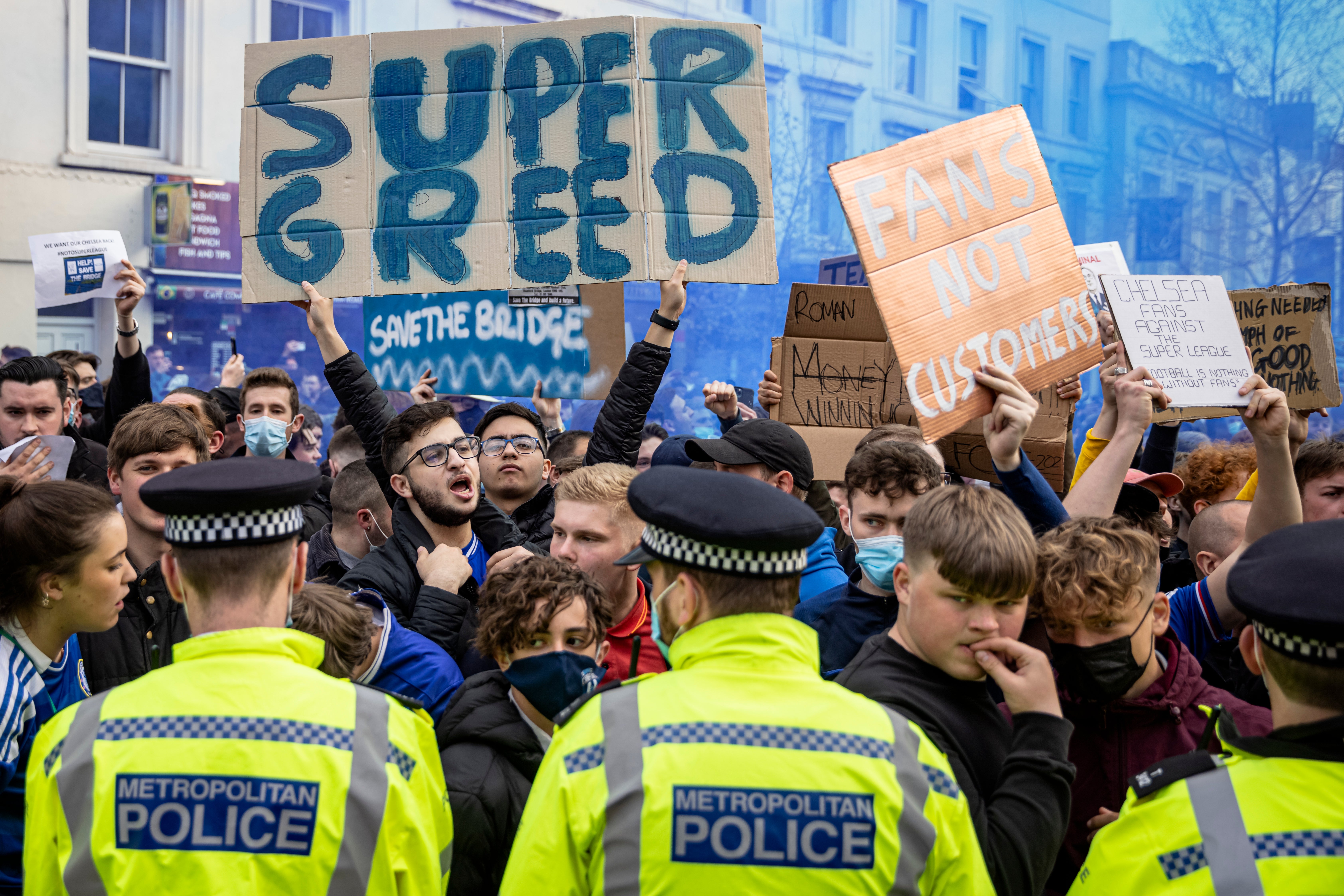Sorry, it wasn’t the fans who stopped the European Super League
Crass as the plan for a new competition was, Will Gore wonders whether football is any less of a closed shop now the proposal has been shelved


During the very short time it was a thing, the European Super League apparently unified even the most ardent of enemies in opposition to the project.
The city of Manchester was united; fans of Arsenal and Tottenham voiced common outrage and – noting their respective league positions – shared embarrassment. And the only person walking alone at Anfield was Liverpool’s dastardly owner, John W Henry.
But did the opponents of the plan really have a monopoly of opinion? According to a snap poll conducted by YouGov before the Super League was scuppered, 14 per cent of respondents were in favour of the idea. And we know of course – since it was obviously part of the clubs’ motivation for the whole shebang – that there were plenty of non-European fans who were keen.
Like the overwhelming majority of people my age, I (a lapsed Manchester United fan) was aghast at the proposition, which seemed to cut hard against not only tradition but the broadest principles of sporting merit. Yet when I asked my son (a nascent Spurs supporter) what he thought, he was well up for it. Indeed, it was all very simple for him. “We’ll be playing against much more interesting teams,” he said gleefully.
A 6-year-old may not be representative of football’s wider fanbase. But I can’t help but wonder whether the plan would have succeeded – in spite of strong supporter opposition – if the wealthy clubs involved had put a few quid into some decent PR, some euros into government lobbying, and a fistful of dollars into the hands of a broadcast partner. No doubt they would have lost a few season-ticket holders and seen a few scarves burned, but in the long run, wouldn’t most fans have trudged wearily back?
After all, football has survived tumultuous change before: the rise of the Premier League; the demise of live league matches on terrestrial TV; the end of the traditional 3 o’clock kick off for the bigger clubs; the dominance of foreign players (and foreign club ownership) in the English game; the paradoxical expansion of a reduced number of European competitions.
All of that was about money, in the end. Some of the changes were arguably for the better, but each of them brooked argument, to one extent or another. And fans were lost along the way: those who couldn’t stick the out-of-touch owners; those disillusioned by the idea of players earning half a million a week to sit on the bench and tweet selfies; and others who just felt that the glory of the game was a thing of the past.
However, for every fan who stopped going to matches, there were five waiting to queue up for a ticket. For the supporter unwilling to shell out a fiver for a matchday programme, there was another happy to part with 60 quid for a replica shirt (every season). The wheels of the game, oiled by ever-increasing piles of cash, never stopped for a moment.
Such was the shambolic nature of last week’s events, it is almost tempting to consider that it might have been some bizarre but deliberate attempt to draw the sting, before the clubs try again in a few years’ time – when “lessons have been learned”, and the prospect of a revised European Super League, perhaps developed with “fan input”, is more palatable.
Fundamentally, football is already a closed shop. Since the advent of the Premier League in 1992, seven teams have won the title. Leicester City broke through the ranks of the also-rans in 2015-16, but only after being bought by a billionaire a few years earlier. In the same period, the Spanish LaLiga and Italy’s Serie A have each been won by just five different clubs. Sure, talent buys success; but money buys talent.
The Super League debacle proved that the arrogance of football businessmen knows no bounds. But neither does their wealth; and when all’s said and done, they are pretty much still in charge.
The oft-quoted former manager of Liverpool, Bill Shankly, once said: “At a football club, there’s a holy trinity – the players, the manager and the supporters. Directors don’t come into it. They’re only there to sign the cheques.”
European Super League or not, that dictum now requires a mighty leap of faith.
Join our commenting forum
Join thought-provoking conversations, follow other Independent readers and see their replies
Comments